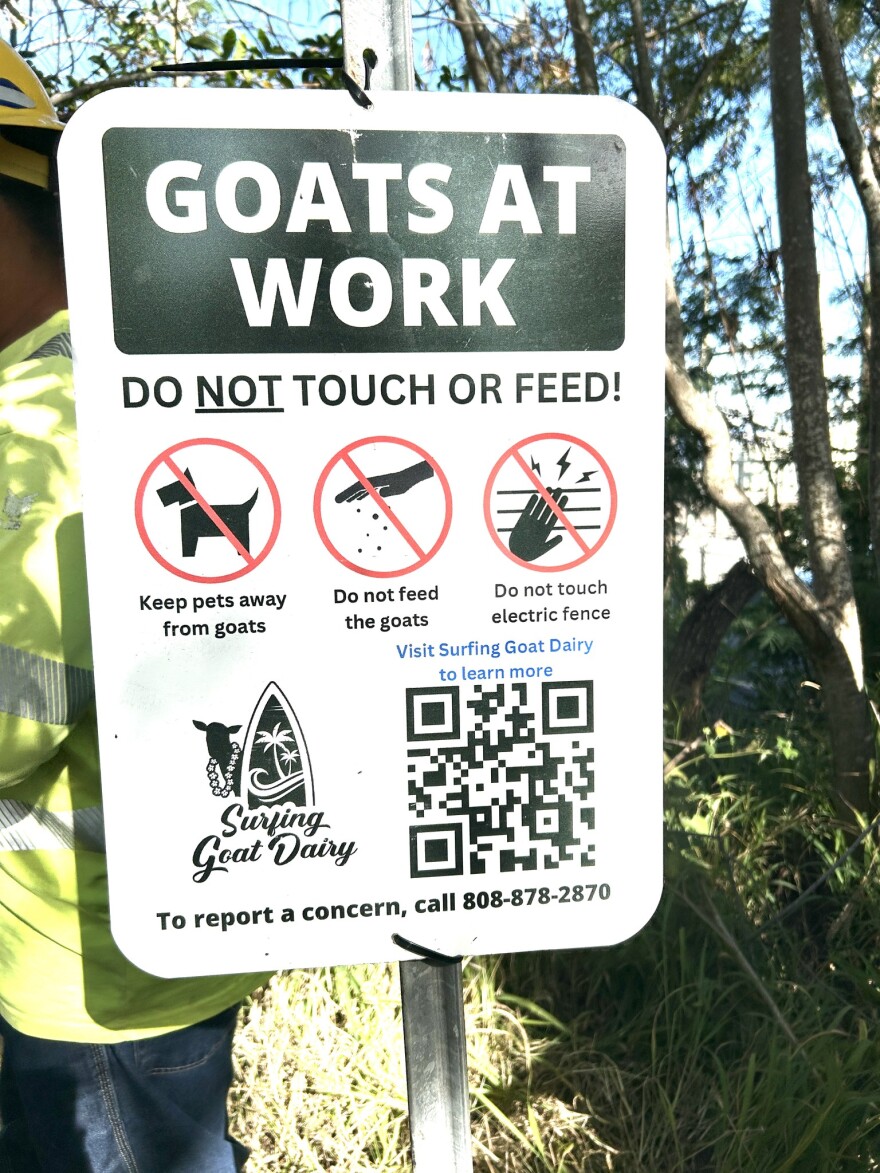Using grazing animals to help with fire prevention isn’t a new solution, but on Maui, goats are helping with the task. Hawaiian Electric had a herd of goats on its payroll as part of a pilot program.
“This is the first time in our company's 100-plus [year] history where we employed working goats,” said Hawaiian Electric spokesperson Shayna Decker.
“In doing this pilot, we were wanting to demonstrate to other landowners and community organizations that this is a viable land clearing option, and to possibly implement this and other methods to help reduce the wildfire risk throughout our islands,” she said.
Surfing Goat Dairy offers grazing as a community service, said owner Jay Garnett, describing the benefits.
“Primarily cutting fire break naturally and kind of in an eco-friendly manner," he explained. "The big positives are, it's not a machine. You're not actually putting all the [fire] fuel on the ground. The goats are consuming the grasses, and then with their droppings, they're actually fertilizing the ground, which is very positive.”
With a herd of about 400 goats, Surfing Goat Dairy is focused on agri-tourism with farm tours as well as sales of goat milk cheese and other products. Their dairy goats don’t leave the Upcountry Maui farm, but Garnett said they have a herd of about 50 goats available for the grazing program.
“Goats don't have teeth on the top, so you don't actually pull the root systems out when you actually graze, like cattle or horses," Garnett explained. "So from an environmental standpoint, you mow it down to a nice low level, but you're still leaving the root systems in place. So when the rains come, you don't get washouts.”
Decker called the pilot program a success.

“We selected a site near one of our substations in Upcountry Maui and Surfing Goat Dairy was able to fence in about one acre of space, and we put in 15 goats, and it was estimated that it would take about one month to clear, you know, but to everyone's surprise, the goats got it done within eight days,” she said.
But the goats are not a good fit for every site. Garnett said he has to consider safety factors for his animals, like proximity to highways, or nearby dogs. The area first has to be fenced, and the goats also need access to shade and water, so staff have to be able to truck water in for them.
Timing is also important.
“If you wait until this time of year when everything's dead, the goats don't have any food, so they don't eat down the grass, so you have to hit it at the right time of year,” he said.
February to March, towards the end of the rainy, winter season, is ideal.
Garnett said given the time involved in site setup, Surfing Goat's grazing services are a break-even operation.
“It is a lot of work," he said. "I wouldn't say it's a profitable program for us. It's definitely a community service program, you know, I think it's a very important program for us to have and for the community to utilize.”
Decker said fire fuel mitigation needs to be a community-wide effort.
“I think that's the big takeaway, is that it's going to take all of us to do different types of work efforts to help reduce wildfire risk as we see an increase in frequent and extreme weather conditions and climate change,” she said.
Garnett hopes that as the community learns more about goat grazing, it may become a more widely used tool for landowners.






